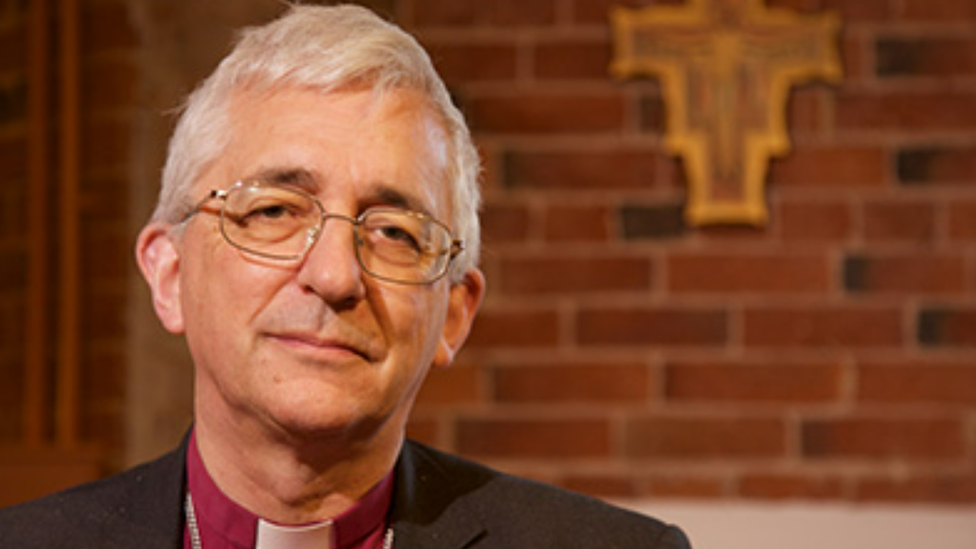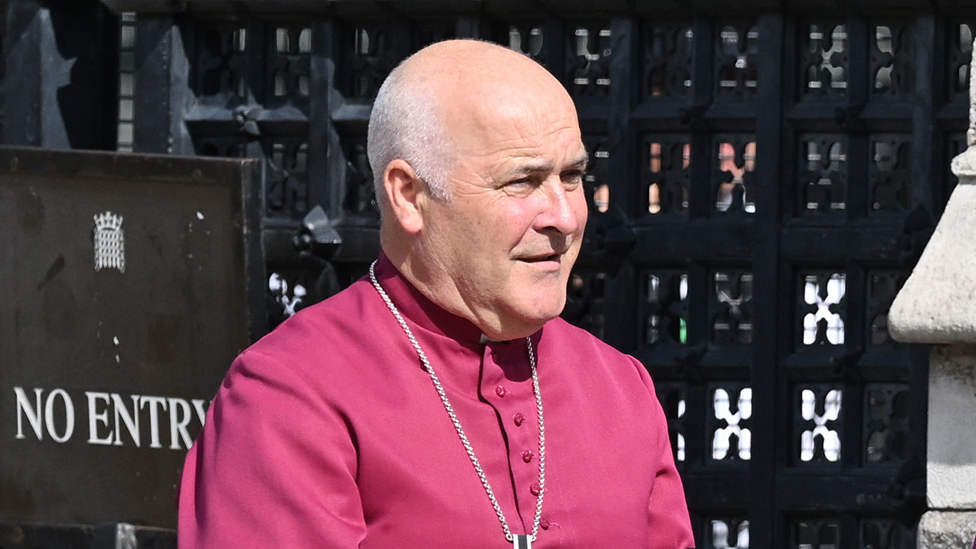Bishop of Lichfield concedes abuse voices 'not heard'
- Published

The Right Reverend Dr Michael Ipgrave has "apologised unreservedly"
A bishop has apologised to victims of sexual abuse after a review found 31 new cases of safeguarding concerns in his diocese.
A fresh Past Cases Review was run in all Church of England (C of E) dioceses between 2019 and 2022 after fears of a flawed probe in the decade before.
The original review was launched after C of E clergy and staff were charged with sex offences against children.
The Bishop of Lichfield acknowledged "voices have not been heard".
Following review of the diocese, external as part of the national programme, the Rt Reverend Dr Michael Ipgrave also apologised to those whose voices were "not taken seriously".
The Diocese of Lichfield covers more than 500 churches in Staffordshire, Shropshire and the Black Country, although the investigation has not cover Lichfield Cathedral which is subject to a separate exam.
Independent reviewers from outside the areas carried out the task locally, looking at files as far back as the 1960s, the C of E said.
It added 1,897 files were reviewed for Lichfield, "the bulk of which" were "routine personnel files" for current and retired clergy, but also included all historical safeguarding case files, plus an examination of concerns raised by parishes during the review process.
A total of 31 new safeguarding cases emerged, meaning those in which fresh information was found "pertaining to an individual or a concern that was previously unknown by local safeguarding teams or equivalent".

The Diocese of Lichfield is home to more than 500 churches in Staffordshire, Shropshire and the Black Country - its cathedral base is subject to a separate review
"Several" of the 31 cases concerned clergy who were identified as abuse survivors, said the Church, adding 12 related to files containing insufficient information "that required clarification".
The C of E said all of the new cases were being, or were in the process of being, followed up by the Diocesan Safeguarding Team (DST), with separate referrals made for cases that were already known but required further action or clarification.
'Risk to survivors'
A safeguarding adviser was appointed to the diocese in 2017, before which time, the C of E said, record-keeping there was "very poor", potentially "posing a risk to survivors".
The review found "very encouraging improvement in the provision of support to victims / survivors since 2017", but said challenges existed, noting a need for better decision-making and case management, and that the safeguarding team had suffered reduced capacity at times, affecting its ability for consistent response.
The review also highlighted a need for improved processes to ensure local lay ministers had up-to-date disclosure and barring certification and safeguarding training.
A total of 39 recommendations were made to the diocese to address such issues, with more than half already acted upon, the C of E said, with the implementation of the remainder to be overseen by a scrutiny panel.
"On behalf of the Diocese of Lichfield, I apologise unreservedly to people who have been victims of abuse in our churches whether as children or vulnerable adults," the Bishop of Lichfield said in a statement.
"We recognise the ways in which positions of power and trust have been abused, causing inexcusable pain and hurt to survivors and their families.
"Although there has been significant positive change, we are not complacent and know that there is still work to do to continually improve our safeguarding effectiveness."
Offering a "heartfelt apology" to those "whose voices have not been heard or taken seriously", he added on BBC Radio Stoke: "I have learned to be a bit more questioning about other people, clergy and others.
"I have had to learn to be a bit more questioning about my own instincts and reactions. We need to be constantly vigilant."

Follow BBC West Midlands on Facebook, external, Twitter, external and Instagram, external. Send your story ideas to: newsonline.westmidlands@bbc.co.uk, external
Related topics
- Published9 October 2022
